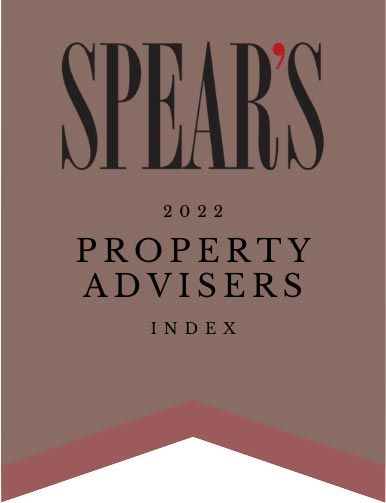The team at Large Mortgage Loans are here to help you find the best options based on your needs and circumstances. Whether you are about to purchase a new property, remortgage your current deal or want to switch from your lender’s current Standard Variable Rate (SVR), we are here to help. As a result, we’ve compiled a couple of the current most searched for questions in Google to help provide some guidance.
1. Should borrowers remortgage now or wait?
The base rate has risen significantly in 2022, as a result of rising inflation, and the impact the mini-budget had a couple of weeks ago on the cost of funds for mortgages. As a result, the knock-on effect is that mortgages are now more expensive, and this applies to those on a variable rate product (which is linked to Bank Base Rate) or if you are looking to get a new fixed rate product. With this in mind, and taking into consideration a number of factors including the terms of the existing mortgage product, the customers attitude to risk and both the customers current and future personal circumstances, then it may be worth considering locking into a competitive fixed rate now to avoid higher costs later.
Many borrowers will often go direct to the bank or building society that they bank with to get a mortgage, however using an independent mortgage broker and getting expert advice is vital in times like this. A whole of market mortgage broker will be able to search the entire market of mortgage products to find the most suitable mortgage product that suits your requirements.
2. Should I remortgage now before end of fixed term?
The best time to review your mortgage is around 6 months before the end of the fixed-rate period. But don’t worry if you’re less than that now, anytime before the fixed rate ends is a good enough time as your mortgage payments are likely to increase as soon as you go onto the lenders standard variable rate (SVR). It’s important that you don’t just accept the rate your existing lender is offering, shop around first to see if there is a cheaper option out there.
3. Will mortgage rates go up in 2022/2023?

On the 3rd of August 2023, the Bank of England raised interest rates to 5.25%, making this the fifteenth rise since the beginning of December 2021 – when bank rates stood at just 0.1%. With inflation currently sitting at 7.9%, which is 5.9% higher than the government’s 2% target, rates may continue to increase further to try and bring inflation down.
4. Is it worth remortgaging early?
As each mortgage deal is unique, remortgaging early could well save you money, even if you have to pay the early redemption fees to exit your current deal. However, waiting until your fixed term expires may also be a better option, as it all depends on your existing deal and the new deal you’re offered. Your mortgage broker will help work out all the relevant calculations for you based on the amount you want to borrow, the loan to value and your current income and personal circumstances.
5. Is it a good idea to get a 5 year fixed mortgage?
Taking a longer-term product has its advantages & disadvantages. The main advantage is that it provides long-term stability, as it means you will lock in the interest rate for five years, even if the Bank of England base rate increases. This is especially useful in times of economic uncertainty like now when interest rates are fluctuating a lot. Longer term fixed rate deals such as 10, 15 or even 40 year terms are also available. The downside is that cheaper products may come onto the market after you have locked in, meaning that you could pay less. Again, this is where the expert advice of a mortgage broker can help as they will be able to work out whether it’s worth paying the early repayment fees to break the current product, based on what you would be saving on the new one.
6. What is the best fixed-rate mortgage?
A lot of it depends on the loan to value of your current mortgage, for example, how much are you borrowing against the value of your property? How much is left on your remaining term? Based on a 55% loan to value, a quick search before I stepped into this room showed that a 2-year fixed rate product currently starts at 5.43% and a 5 year is 5.34%.
7. What can borrowers do if they are worried they won’t be able to afford their monthly repayments when their fixed rate ends?
It’s a very difficult question to answer directly, as it all depends on the borrower’s current circumstances. However, I completely sympathise with why people are asking that question based on the current mortgage rates available, coupled with the cost of living this winter.
Firstly, seek advice. Working with your mortgage broker will help find the most appropriate deal for you and the broker should be able to provide advice on what actions you should take.
Secondly, a number of lenders will allow you to take payment holidays, a concept which the Government insisted on during the pandemic, where borrowers can take up to 6 months off paying their mortgage. It’s important to note, that it’s not a holiday per-se, its deferring the payment until another month, meaning that interest will still be charged and added to the loan until the mortgage is paid off in full.
Thirdly, borrowers could have the option to switch their monthly payment to interest only, meaning that they are only paying off the interest of the loan, not the capital amount. This could help provide a bit of breathing space until more affordable rates are available. However, some lenders will only allow switching to Interest only up to a certain LTV.
Finally, lenders do not want to repossess properties. If you are worried and you and your mortgage broker have exhausted all other options, speak to them and I’m sure they will work with you to help find a solution that works for both you and the lender.
8. Are borrowers confused with the current mortgage rates?
Yes is the short answer. With the sudden rise in the cost of funding as a result of the mini-budget announcement, lenders have very quickly either withdrawn certain products or have re-priced them in an attempt to become more risk-averse in such volatile markets.
Moneyfacts have reported that over 350 mortgage products were withdrawn in response to the turmoil which includes High Street and specialist lenders.
Halifax, owned by Lloyds Bank removed some of its mortgage products, while Virgin Money stopped taking mortgage applications from new customers altogether for over a week.
There is no doubt that borrowers are worried, and I’ve read somewhere that online searches for “remortgage” more than doubled in a day. Some may now struggle to find any deals at all which is why seeking advice from a professional is really important.
9. What would be the key message that you would give to borrowers at the moment?
My main message is don’t panic. Help and guidance is available from your mortgage broker. We are not in a credit crunch like in 2007/08. The difference between then and now is that lenders want to lend, unlike back then when they stopped lending altogether because of the risk. Rates have gone high because of the sudden increase in the cost of funding which lenders have to pay from the money markets and so there are solutions available. Seek advice from specialist mortgage brokers. My team at Largemortgageloans.com are on hand to help guide and advise borrowers through the current economic backdrop to find a solution that suits them.
THIS ARTICLE IS FOR INFORMATION ONLY AND DOES NOT CONSTITUTE ADVICE.
Large Mortgage Loans is a licensed credit broker, and not a lender. Large Mortgage Loans is a trading name of Largemortgageloans.com Limited, which is authorised and regulated by the Financial Conduct Authority (FCA) with firm reference no. 302228. Most buy to let and commercial mortgages are not regulated by the FCA.























